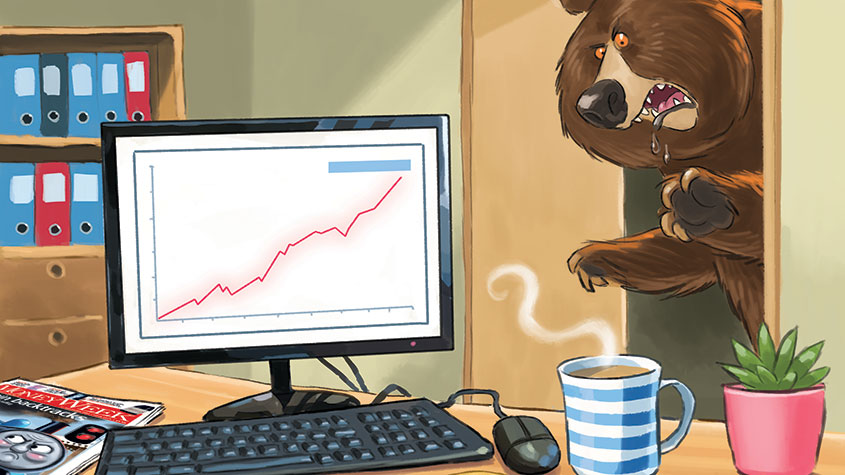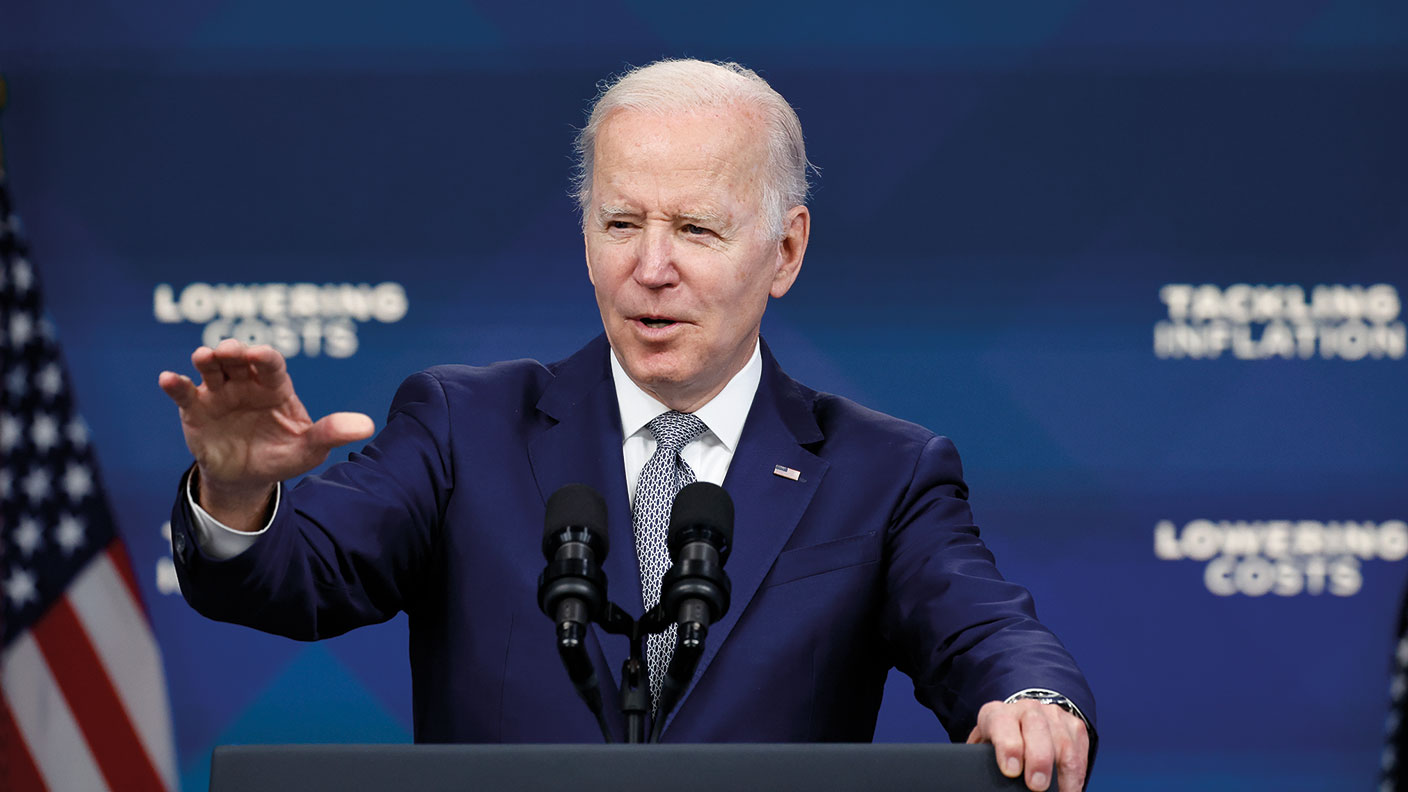The devil collects on his deal
Quantitative easing just postponed the pain of the 2008 crisis, says Merryn Somerset Webb. And quantitative tightening could make 2018 look almost rewarding compared to 2019.

Get the latest financial news, insights and expert analysis from our award-winning MoneyWeek team, to help you understand what really matters when it comes to your finances.
You are now subscribed
Your newsletter sign-up was successful
Want to add more newsletters?

Twice daily
MoneyWeek
Get the latest financial news, insights and expert analysis from our award-winning MoneyWeek team, to help you understand what really matters when it comes to your finances.

Four times a week
Look After My Bills
Sign up to our free money-saving newsletter, filled with the latest news and expert advice to help you find the best tips and deals for managing your bills. Start saving today!

"Rising interest rates and quantitative tightening (QT) are not the problem. They are the inevitable consequence of the problem. The Federal Reserve made a deal with the devil to postpone the necessary pain when it cut rates to zero and launched QE (quantitative easing). The devil has finally showed up to collect. Welcome to hell!" So said US analyst Peter Schiff in late December, as Fed boss Jerome Powell declined to produce any Christmas cheer for investors and it became clear that, barring a miracle, US stocks were about to see their worst December since 1931. But if Schiff is right that QE just postponed the pain of the 2008 crisis might QT make 2018 look almost rewarding next to 2019?
The latest note from James Montier at US asset manager GMO suggests it might. US valuations in particular are so high, he says, that "to believe that US equities are going to generate a normal' return from these levels, you have to believe some quite extraordinary things". That profits will rise far beyond today's already extended levels (see my analysis here for more on why this could be possible); that price/earnings ratios will soar to levels above those at the height of the technology, media, telecommunications (TMT) bubble; or that growth is going to reach "unprecedented levels". If you don't believe any of those, you should see US equities as a whole not as a default investment (as most investors do) but as an "an expensive and risky asset" to avoid.
We agree with Montier we've been suggesting you shift out of the US for some time, and we still think that's a wise idea. But while we are nervous about many other things too (Brexit failing, China being unable to cope with lower growth, trade wars, Italy's relationship with the European Union, and so on) we are loath to be too bearish on all markets. The rising importance of China and other emerging markets (now 40% of global GDP); high global debt levels; the productivity potential embedded in technology; the volatile oil price; and the uncertainty around the normalisation of monetary policy, all make today's world so non-binary, that making much in the way of precise forecasts is pointless.
MoneyWeek
Subscribe to MoneyWeek today and get your first six magazine issues absolutely FREE

Sign up to Money Morning
Don't miss the latest investment and personal finances news, market analysis, plus money-saving tips with our free twice-daily newsletter
Don't miss the latest investment and personal finances news, market analysis, plus money-saving tips with our free twice-daily newsletter
With that in mind, turn to our cover story. There you will find all sorts of exciting ideas. Some are niche a small biotech and a helium miner. Some reflect the usual preoccupations of our writers (inflation and gold for example we do worry about stagflation). But others are interesting bets on the possibility that the misery consensus is wrong. What if Brexit isn't so bad? Perhaps you should buy UK small caps or shares in Next. What if the dollar weakens rather than strengthens? Perhaps you should buy emerging markets and India in particular. What if a full-blown trade war is averted? Then buy China. All these things are possible. A very Happy New Year to all our readers, and we'll see you again in 2019, on 11 January.
Get the latest financial news, insights and expert analysis from our award-winning MoneyWeek team, to help you understand what really matters when it comes to your finances.

-
 Early signs of the AI apocalypse?
Early signs of the AI apocalypse?Uncertainty is rife as investors question what the impact of AI will be.
-
 Reach for the stars to boost Britain's space industry
Reach for the stars to boost Britain's space industryopinion We can’t afford to neglect Britain's space industry. Unfortunately, the government is taking completely the wrong approach, says Matthew Lynn
-
 What to do as the age of cheap money and overpriced equities ends
What to do as the age of cheap money and overpriced equities endsEditor's letter The age of cheap money, overpriced equities and negative interest rates is over. The great bond bull market is over. All this means you will be losing money, says Merryn Somerset Webb. What can you do to protect yourself?
-
 Investors are bullish – but be very careful
Investors are bullish – but be very carefulEditor's letter Many investors are buying the dip, convinced the latest upswing is the start of a new bull market. The odds are that it’s not, says Andrew Van Sickle. The bear has unfinished business.
-
The MoneyWeek approach to investing
Editor's letter At MoneyWeek, our aim is simple: to give you intelligent and enjoyable commentary on the most important financial stories, and tell you how to profit from them. So how do we do that?
-
 Celebrity bitcoin ads echo the subprime mortgage crisis
Celebrity bitcoin ads echo the subprime mortgage crisisEditor's letter A wave of ads featuring celebrities punting crypto to the masses are reminiscent of how low income Americans were encouraged to take on loans they couldn’t afford, says Merryn Somerset Webb.
-
 Will the UK's property slowdown turn into a house-price crash?
Will the UK's property slowdown turn into a house-price crash?Editor's letter As the cost-of-living crisis intensifies and interest rate rise, it is hard to see reasons for UK house prices to keep rising, says Merryn Somerset Webb.
-
 The unintended consequences of ESG investing
The unintended consequences of ESG investingEditor's letter Many people are refusing to invest in energy companies, citing "ESG" concerns. But we still need fossil fuels, says Merryn Somerset Webb, and will for years to come. Boycotting the sector is a bad idea.
-
 What sardines can teach investors about today's markets
What sardines can teach investors about today's marketsEditor's letter A California tale of “eating sardines” and “trading sardines” can help us divide investments into speculative and real, says Merryn Somerset Webb. Something that's very useful when looking at today’s markets.
-
 The market finally seems to be getting it
The market finally seems to be getting itEditor's letter Reality checks are coming fast to the markets, says Merryn Somerset Webb – with even 2022’s safe havens beginning to reflect recession worries.